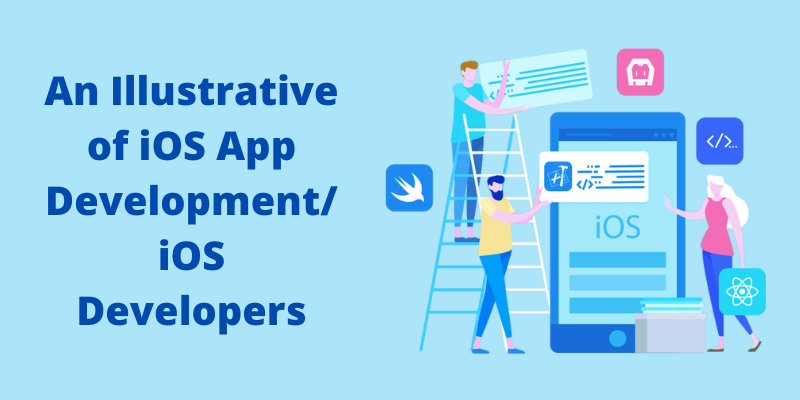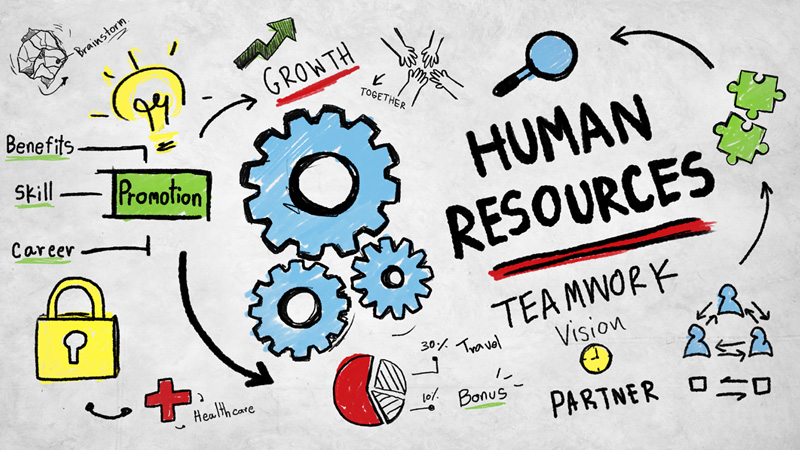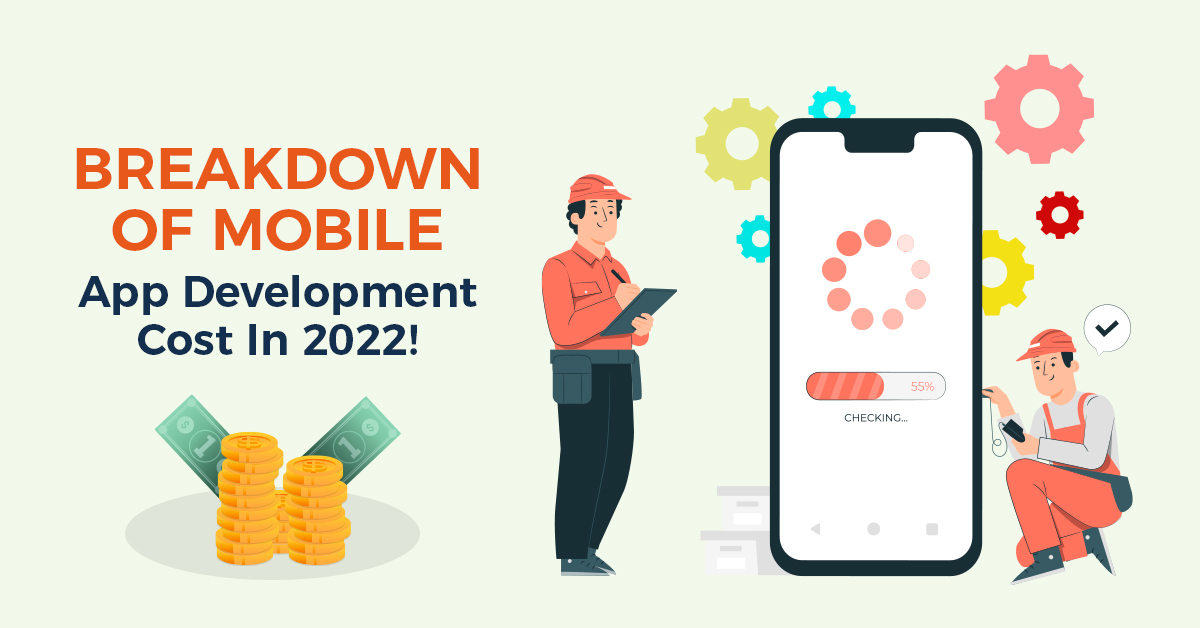We are tagging specific techniques, and skills for hiring iOS App Developers in 2022 to check and get their hands on them!
Mobile Applications run on an untethered device, target a specific task, make heavy use of the data network, and have a simple delivery mechanism (i.e. Google Play Store, or Apple Store). Some mobile apps use location, make heavy use of the network for content and interactions, and have a device and server component, use high-speed data networks, use economical-high-performing devices with incremental processing and storage capacities. Moreover, the presence of easy-to-use marketplaces for apps like iTunes for iOS Apps makes them easily available and affordable for widespread adoption.
Tools that iOS Developers Use
- Programming Languages for iOS App Development: Objective-C, Swift
- iOS App Development Tools: Apple Xcode, iOS SDK, Xcode Cloud
- Front-end: Cascading Style Sheets (CSS), WebAssembly, JavaScript, HTML
- User Interface Frameworks: UIKit, SwiftUI
- Testing: TestFlight
- Third-party Code Distribution: CocoaPods
- IDE: AppCode
- GIT/Mercurial Client: SourceTree
- Terminal Emulator: iTerm2
- Back-end: Frameworks and language, Web servers, Database management system, Platforms for micro-services on the cloud, Local development environments, Performance testers for websites, Collaborative tools
- Database: SQLite, Core Data
- Performance Testing: UI Automator
- Architecture: Microservices
Which technique should you know to become a better iOS developer?
To get started, create a GitHub Repository and then create deliberate examples (Date, enums, tuple, and format). Learn stack overflow, auto layout, and how to work on a project. iOS Developers must pick one subject at a time while they create a GitHub repository, and give themselves time to play with it, demystify subjects, level up, and become better at iPhone App Development Company. Learn Xcode (Code editor, project organizer, debugger, compiler), programming language (Swift, Objective C), UI/UX basics, and build creative apps.
Out of the multifarious ways, deliberate practice through GitHub Repository is the foremost one to discern. When you first get into iOS, there is so much to learn. You have new terms, UI Kit, Core Data, Core Graphics, Core Animation, and a whole host of other things that can lead you to a spider web. iOS Developers require Mac computers that execute the latest version of Xcode (Apple’s IDE for Mac and iOS Apps; it is also a graphical user interface to write iOS Apps).
iOS App Development tools like Swift, Objective-C and Xcode, assist iOS Developers in streamlining the process, thus reducing the development time. There are Cocoapods to manage external libraries and scale projects. Plus, there is API documentation and ways to manage code snippets.
Additionally, there is Firebase for managing databases, hosting and user authentication, parsing for backend implementation, a firm grasp on various hard skills – conceptualization, market research, basic design, coding, testing, compliance, and submission on App Store.
It may sound straightforward, but it requires a dedicated study. Niche iOS Developers combine technical expertise with a range of soft skills. While they may take additional time to brush up, they can be practiced across a range of disciplines.
Once iPhone/iPad developers put together some basic features, complete an app, and assemble their professional portfolio, they can still keep up refining their app, and update their portfolio to keep up with their impressive achievements.
A platform like GitHub not only shows people the work they’ve done, it also makes it visible to others in the same field, connecting them to a range of opportunities to work on new projects and raise their professional profile.
11 Tips for Best iOS Development (In no particular order)
- Finalize your app idea after consistent research.
- Create Minimum Viable Product (MVP) i.e. the simplest workable version of your iOS app.
- Make a way for customers to share their feedback on MVP.
- You should continually communicate with the mobile app development companies about the priorities and ensure that they check them off before moving ahead.
- Market your app effectively. Think about how you will promote your app to your customers, long before it is been presented to them.
- Test your app through multiple levels before launching it on the App store.
- Adjust object pooling, compressing graphics, compressing sounds, using less CPU/memory in your app development routine.
- Be aware of intellectual property rights, regardless of the app development platform – iOS or Android. Be aware of the process to license images, music, and sound effects for your app. Use a crash reporting tool like Fabric to immediately notify.
- Include storyboarding, understand iOS App Development fundamentals, learn hotkeys, Cocoapods, Firebase Crashlytics, and Visual Studio App Center.
- Start using GIT early so that you can roll back in case you break something.
- Include smooth and simple animations, avoid third-party libraries like the plague – while they might save some development time early on, it might cost you later, as a specific feature can stop working if that library changes.
What is the cost to hire an iOS developer?
It costs approximately $80,000/year to hire iOS developers in Europe and about $1, 20, 000 in the US. (Updated April 2022)
Conclusive: Skills You Require to Get Hired As An iOS Developer
An iOS App offers many more reasons to generate revenue as in-app spending per active iPhone is high. It features a higher level of security due to integrated data handling systems, prevents data duplication, data encryption, and easy testing. It takes hours, days, and months into learning and implementing before your first professional project.
An important point that iOS App Developers must discern while developing an iOS App is to have an understanding of Apple’s iOS devices, operating system, development environment, development, usage, apps, tips etc. They should have:
- Familiarity with User Interface and User Experience
- High-level proficiency in Objective-C or swift
- Familiarity with databases – MongoDB, Oracle, MySQL, SQLServer
- Experience with the latest iOS frameworks and libraries, such as SwiftUI, Quartz Core, realm, RxSwift
Learn about the candidate via their resume, their social profile – teaching courses, podcasts, interviews, stack overflow, GIT repository and the quality of code. Ensure that they are good with their programming theory, technologies (Xcode, SwiftUI, UIKit), frameworks, and practical skills in design, and development with Xcode, Swift Playgrounds, TestFlight etc. Look for these skills as you find the top iOS developers, hung up there and never give up!





